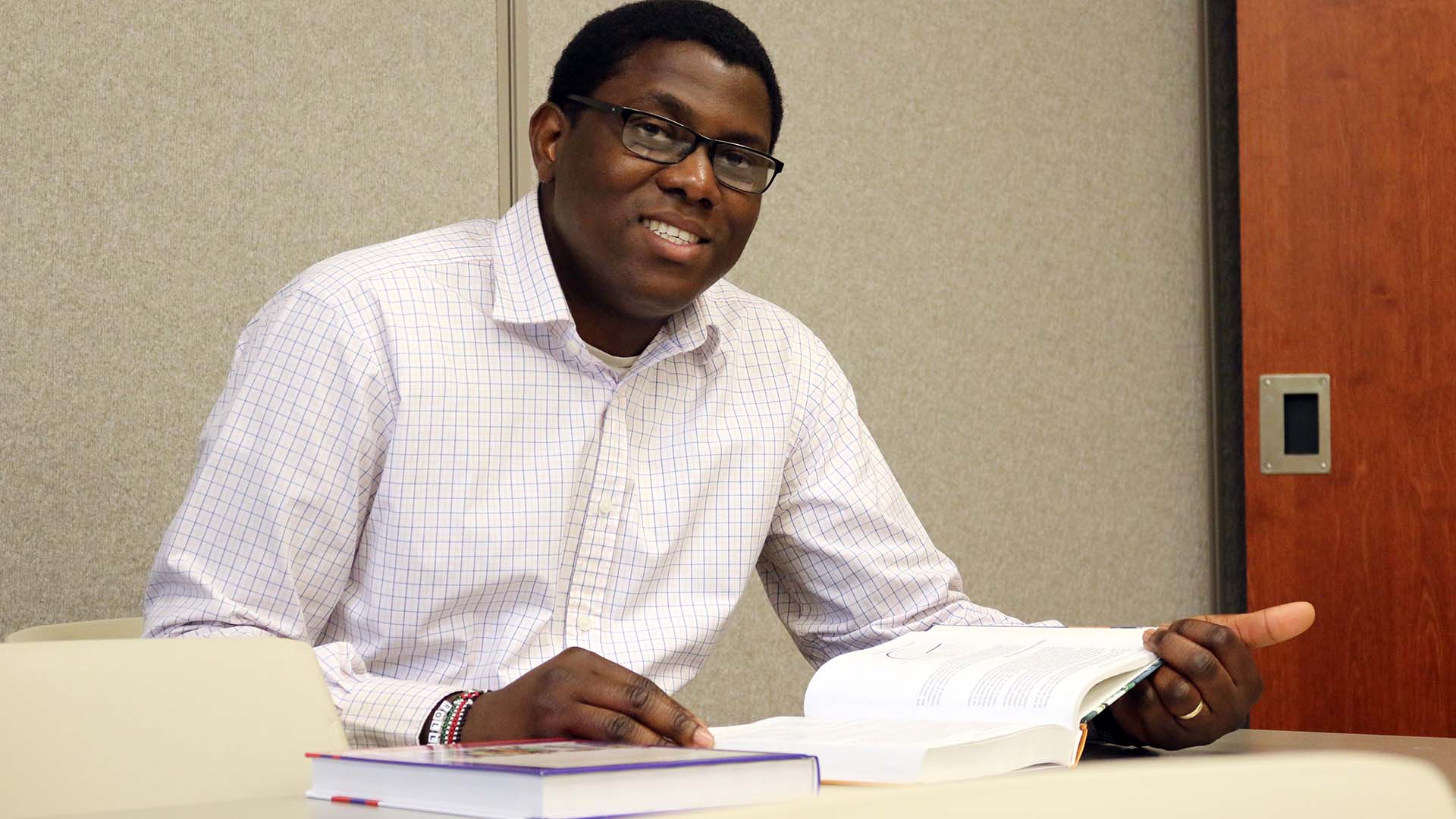Hee Yun Lee, professor and Endowed Chair in Social Work, and Hyunjin “Gina” Noh, assistant professor of social work, were each awarded a 2018 Community Engagement Graduate Fellowship by the Faculty Teaching and Research Support Committee of the Council on Community-Based Partnerships (CCBP) at UA. They are two of three UA faculty recipients of the highly competitive award.
The Council exists to connect faculty, staff, students and community partners in research-based projects designed to solve critical problems identified collaboratively by community members and the University. All academic disciplines are represented on the Council, which is made up of campus and community members.
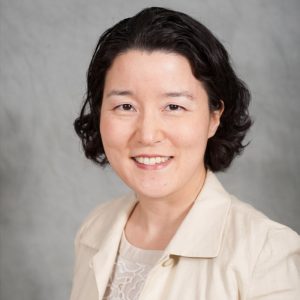
Hyunjin Noh
Dementia Research
Dr. Noh’s fellowship will fund her research study titled “Promoting Advance Care Planning for Persons with Dementia” and includes funding support for a graduate student research assistant. Dr. Noh’s student recipient of the fellowship is MSW student Temilade “Temmy” Ayo Aladeokin. The fellowship will provide Aladeokin, who is enrolled to the school’s concurrent MSW/PhD program, a stipend, health insurance, and a full-tuition scholarship totaling $41,100 for the study period. He will begin the school’s PhD program in the fall.
Aladeokin said he is honored to receive the fellowship.
“Starting my PhD with this project is a great opportunity for me and the School of Social Work,” he said. “It does not come to me as a surprise that we were chosen in a highly competitive application process, because our faculty members are seasoned researchers with great experiences in their fields of interest. I am proud to work alongside Dr. Noh as her experience in this field of study is inspiring and her mentorship will help shape my doctoral education. I am grateful for this opportunity and thankful to my professors who have instilled great knowledge in me, making this a reality.”
In awarding the fellowship to Dr. Noh and Aladeokin, the committee wrote: “The committee was very complementary of your application. It focuses on an interesting topic and population and was considered well-conceived, empirically and theoretically supported, and well-written. Your CBPR methods were explicitly defined and you have established community partnerships with buy-in and clear and shared goals. The interests of you as faculty PI and of the student with whom you will work are well-matched and clearly stated.”
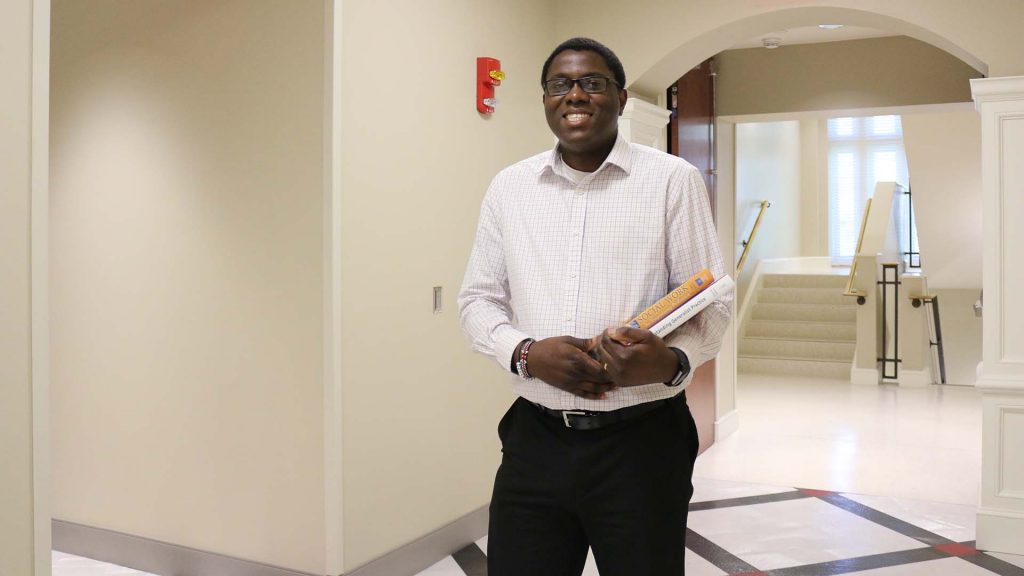
Temmy Ayo Aladeokin
Dr. Noh and Aladeokin will study Advance Care Planning for persons with dementia in rural communities of West Alabama and engage existing community partners of The University of Alabama, including the Pickens County Partnership and social work researchers, to participate in their study.
Adopting the approaches of community-based participatory research (CBPR), the team will collaborate with community partners to understand knowledge about Advanced Care Planning among family caregivers of people with dementia and identify family caregivers’ needs in advance care planning for persons with dementia. The team also will provide support to address such needs. Guided by community partners’ insight and advice, the team will identify and utilize existing community resources and develop and deliver intervention activities in a culturally sensitive manner. They hope their study will add to the current knowledge of barriers and facilitators of advance care planning for persons with dementia.
“The Center for Community-Based Partnerships saw through our research project that Advance Care Planning and end-of-life-care are increasingly being considered health issues in the United States,” Aladeokin said. “While people can develop advance care plans at any point in their lives and update them as their health status and living circumstances change, advance care planning helps ensure that an individual’s preferences and values related to end-of-life-care are understood and honored in the event that he or she is unable to make healthcare decisions.”
Cancer Research
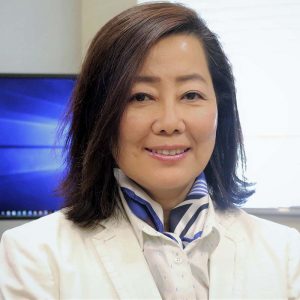
Hee Yun Lee
Dr. Lee’s fellowship will fund her research study titled “Cancer Screening Disparities in Alabama Black Belt: Developing Geographically Targeted and Individually Tailored Intervention Strategies for Cancer Health Equity.” Dr. Lee’s graduate student research assistant for the fellowship is MSW student Kun Wang, who also is enrolled in the school’s concurrent MSW/PhD program. Like Aladeokin, the fellowship will provide Wang with a stipend, health insurance, and a full-tuition scholarship totaling $41,100 for the study period. She also will begin the school’s PhD program in the fall.
Dr. Lee, associate dean of research in the School of Social Work, and Wang will study how to reduce cancer health disparities in Alabama’s Black Belt region. According to the Black Belt Community Foundation, Alabama ‘s Black Belt stretches across the middle of the state from Mississippi almost to the Georgia line and is rich in human, religious, geographic and political diversity. The Black Belt, named for the region’s rich, dark soil, is home to the highest percentage of African Americans in the state.
Dr. Lee said research indicates that Alabama has one of the most significant cancer health disparities in the nation and the cancer mortality rate among Alabamians is higher than the U.S. average. The top five cancers by rate of death in Alabama are lung and bronchus, prostate, female breast, colon and rectum, and pancreas. In 2014, female breast cancer ranked No. 1 by rate of incidence and lung cancer was the most leading cancer by the rates of deaths in the state.
There is a need for better screenings for these types of cancers, Dr. Lee said. For example, cervical cancer screening rates within the past three years in Alabama is 83.2 percent, 10 percent lower than the 2020 target rate.
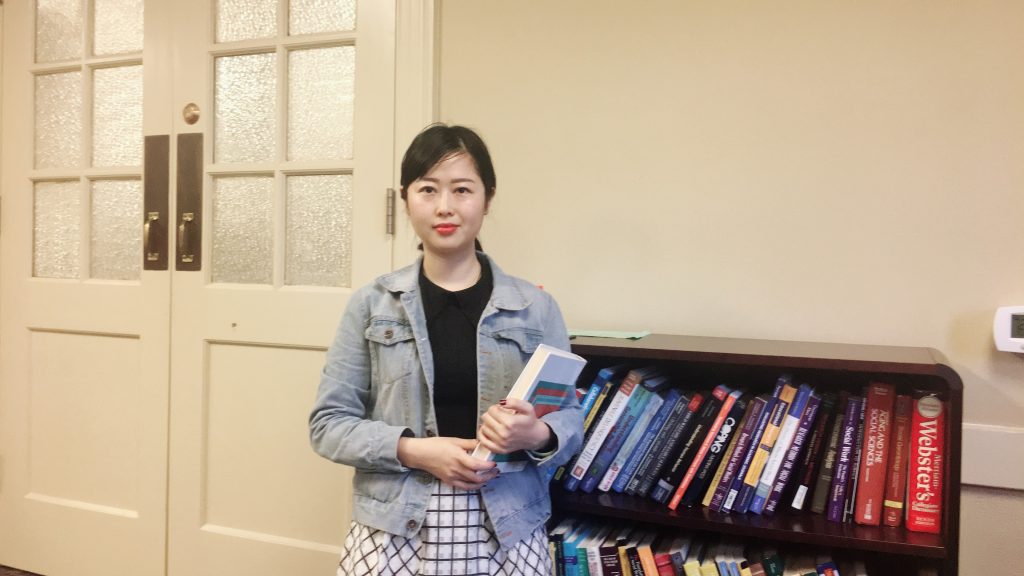
Kun Wang
Given these disparities in Alabama, Dr. Lee said research is needed to provide more evidences on how to reduce the cancer screening disparities and increase the screening rates in Alabama by developing geographically and individually tailored intervention. For their study. Dr. Lee and Wang will collaborate with Cassandra Simon, associate professor of social work, and the Black Belt Community Foundation. The Foundation seeks to transform the Black Belt, “where all of our residents contribute to healthy communities and reap the benefits of our shared gifts and a productive regional economy.”
Wang said she hopes the study will help more residents in the Black Belt region know the importance of cancer screening.
“This research study is a powerful opportunity to reduce cancer health discrimination in some underrepresented communities in the state and to the benefit more people,” she said.
The committee was very complementary of the Dr. Lees and Wang’s research proposal.
“Your use of Andersen’s theory and rationale for the study were considered strengths,” the committee wrote. “The Black Belt Community Foundation is a very strong grassroots community partner and the significance of participation in cancer screenings in the Black Belt a critical focus of health disparities research. Community partnership benefits were clearly described.”
Dr. Noh, Dr. Lee, Wang and Aladeokin were recognized for their fellowship awards at the 12th annual Excellence in Community Engagement Awards Luncheon held April 18 at the Bryant Conference Center Sellers Auditorium at UA.
